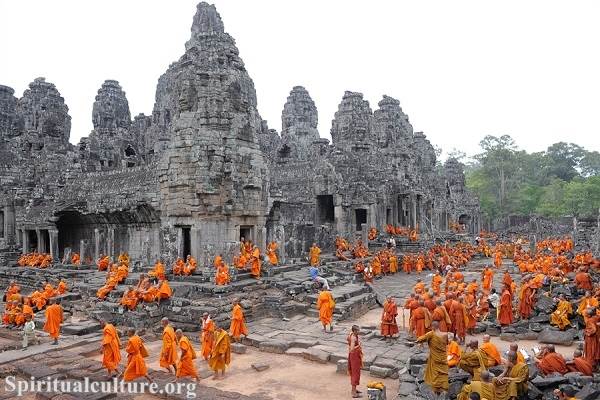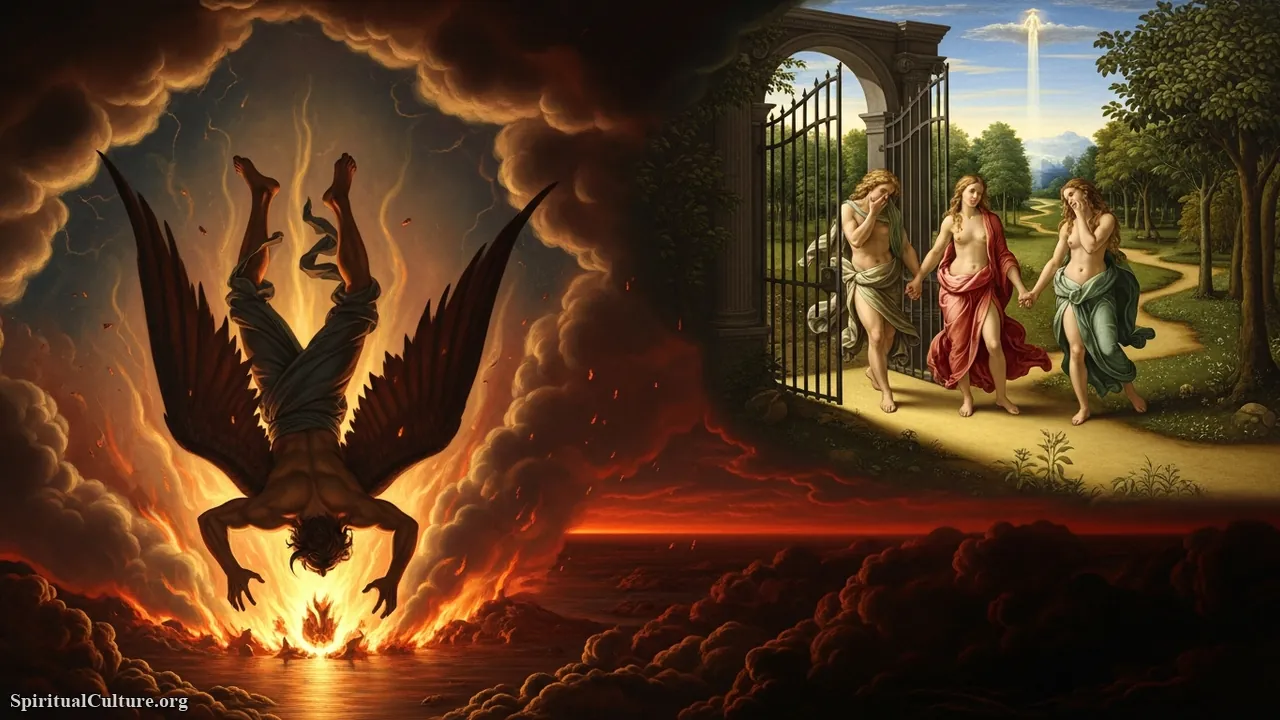Religion has long served as the heartbeat of human civilization — guiding hearts, forming cultures, and inspiring minds. Among its most powerful expressions lies a less obvious, yet profoundly enduring legacy: literature. In nearly every culture and era, from the Psalms of David to the poetry of Rumi, from Dante’s Inferno to the Bhagavad Gita, religion has not only influenced world literature — it has shaped its soul.
As Spiritual Culture, we invite you to explore how sacred texts, theological ideas, and spiritual experience have stirred the pens of poets, prophets, philosophers, and novelists alike. This article journeys through civilizations, tracing how religion has given language to longing, myth to meaning, and voice to the divine.
Religion and the Birth of Written Literature
Sacred Texts as the First Literature
Some of the earliest known writings in human history are religious in nature. These weren’t just prayers or rituals; they were humanity’s first attempts to capture ultimate truth in words.
- The Rig Veda in ancient India (c. 1500 BCE) is a collection of hymns that form the foundation of Hindu cosmology and ritual.
- The Torah, comprising the first five books of the Hebrew Bible, set moral and spiritual paradigms that have influenced not just religion but the very idea of law and justice.
- The Epic of Gilgamesh, while mythological, includes significant reflections on death, immortality, and divine will — unmistakably religious themes.
These early texts weren’t just literary. They were revelatory, considered truth handed down from beyond.
Oral Tradition and Religious Storytelling
Before the written word, oral tradition carried sacred truths across generations. Religious literature — in the form of myths, chants, and parables — was memorized and recited communally. This shaped the rhythmic and poetic structures we now associate with epic literature and scriptural texts.
Even today, Indigenous oral traditions hold spiritual teachings that, while unwritten, are deeply literary in form and function.
Sacred Imagery in Poetry and Prose
The Bible’s Influence on Western Literature
The King James Bible, with its poetic cadence and profound imagery, has influenced countless writers in the English-speaking world.
- John Milton’s Paradise Lost (1667) reimagines the fall of Lucifer and humankind in epic verse, blending theology and classical form.
- William Blake’s poetry fuses biblical themes with mystical visions, often challenging traditional religious views while remaining deeply spiritual.
- T.S. Eliot’s The Waste Land echoes Christian despair and longing for redemption in a modernist voice.
Biblical language—“Let there be light,” “sword of the spirit,” “valley of the shadow of death”—has become embedded in the literary and everyday lexicon.
Islamic Mysticism and Persian Literature
Islamic spirituality, particularly Sufism, has given rise to some of the most lyrical expressions of divine love:
- Rumi, a 13th-century Persian mystic, wrote with such profound insight that his verses continue to inspire people of all faiths:
“The wound is the place where the Light enters you.”
- Hafiz, another Sufi poet, blended humor, sensuality, and spirituality in ways that mirrored the complexities of the human soul.
Their poetry views the divine as the Beloved, making the soul’s longing for union a central literary theme.
The Role of Myth and Religion in Epic Narratives
Hindu Epics: Ramayana and Mahabharata
The Ramayana and Mahabharata are not only sacred texts but also grand literary works, weaving together philosophy, devotion, and drama.
- These epics explore dharma (righteous duty), love, betrayal, and cosmic battles — all within a religious framework.
- Their stories, characters, and moral dilemmas continue to inspire not just Indian literature, but modern adaptations across global media.
Greek Myths and Divine Archetypes
While not religious in the monotheistic sense, Greek myths reflect ancient beliefs about gods, fate, and the cosmos.
- Homer’s Iliad and Odyssey are steeped in the actions and wills of gods — reflecting how belief in the divine shaped both human destiny and narrative form.
- Tragedians like Euripides questioned divine justice and moral paradoxes in plays that were both religious and philosophical.
In both East and West, religion gave literature its earliest themes: the struggle between good and evil, the search for truth, the meaning of life and death.
Religion as a Mirror for Moral and Existential Inquiry
Dostoevsky and the Christian Soul
Russian novelist Fyodor Dostoevsky used literature as a space for deep theological exploration:
- In The Brothers Karamazov, he raises the question: If God does not exist, is everything permitted?
- Through characters like Ivan and Alyosha, he explores faith, doubt, suffering, and salvation — echoing the heart of Christian existentialism.
Modern Novels Wrestling with God
Religion in literature is not always affirming. It can also be a battleground for belief.
- In Albert Camus’ The Plague, the absence of God in the face of suffering becomes a central crisis.
- In Marilynne Robinson’s Gilead, Christian theology is refracted through personal memory, grace, and quiet pastoral life.
Even when secular, much of modern literature still grapples with religious questions: meaning, mortality, redemption, and transcendence.
Religion and the Language of the Ineffable
Mystical Literature and the Limits of Language
Some religious texts and literary works explore the ineffable — truths beyond words.
- The Upanishads speak of Brahman as the “ungraspable, unthinkable, unborn.”
- Christian mystics like Julian of Norwich and Meister Eckhart use paradox and poetry to hint at divine mystery:
“All shall be well, and all shall be well, and all manner of things shall be well.”
Writers often turn to metaphor, paradox, and symbol — not just to describe God, but to evoke the divine presence.
Silence, Absence, and the Sacred
In modern times, some authors use silence and absence as religious devices:
- Samuel Beckett’s sparse and existential style mirrors the silence of God in a post-war world.
- Japanese Zen literature, including haiku, reflects the spiritual weight of simplicity and stillness.
This reveals a profound truth: sometimes the lack of speech is itself a form of divine expression.
Religion’s Influence Beyond the Sacred Genre
Allegory, Symbolism, and Religious Allusions
Even secular writers often use religious symbolism:
- C.S. Lewis’s Chronicles of Narnia reinterprets Christian theology through fantasy, with Aslan as a Christ figure.
- Toni Morrison’s Beloved carries biblical allusions and spiritual undertones exploring memory, freedom, and salvation.
- George Orwell’s Animal Farm, though political, echoes moral archetypes found in religious literature: betrayal, fall, redemption.
Religious frameworks offer universal metaphors — light and darkness, wilderness and home, exile and return.
Literary Structures Inherited from Religion
The act of storytelling itself is shaped by religious patterns:
- Pilgrimage becomes narrative journey.
- Conversion becomes character arc.
- Revelation becomes climax.
From Dante’s Divine Comedy to modern memoirs of faith, religious influence can be seen not only in content, but in structure.
Reflect and Reimagine
Religion has not merely inspired world literature — it has animated its core. From the earliest oral myths to modern novels, religion has served as both muse and mirror: giving writers a way to express awe, question suffering, explore destiny, and seek transcendence.
In a time when faith and fiction often seem divided, let us remember: storytelling itself is a sacred act. Whether written in fire on mountaintops or whispered through poetic metaphor, religious influence continues to shape literature as the language of the soul.
As Spiritual Culture, we invite you to read not only with your mind, but with your spirit — to see in literature the footprints of the Divine, and perhaps, the whisper of your own sacred story.





